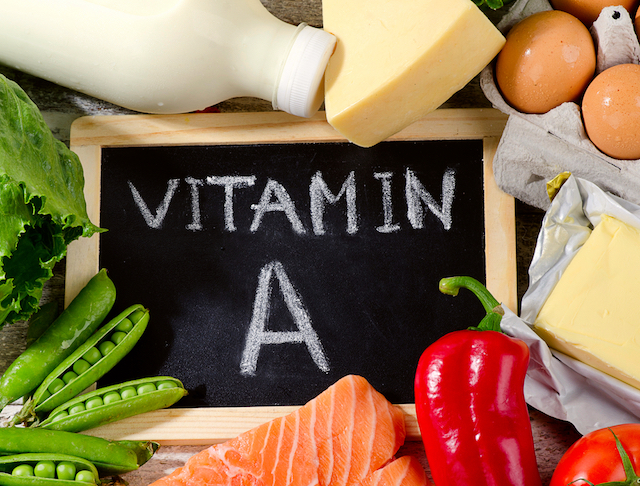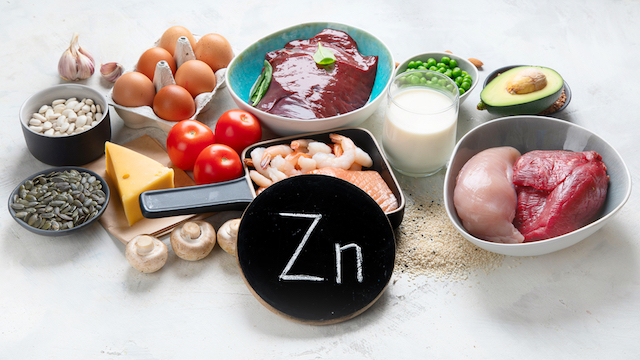- Home
- Blog
- Medical Diets
- Eat to boost your immune system - 4 nutrients that help
Eat to boost your immune system - 4 nutrients that help
Written by Catherine Saxelby
on Wednesday, 25 March 2020.
Tagged: health, healthy cooking, healthy eating, healthy lifestyle, nutrients, nutrition, vitamins

By now, we all know the symptoms of a COVID-19 infection. Fever, a dry cough, sore throat, shortness of breath, and sometimes aches and pains. However, as winter rolls around the annual cold and flu season does too. So, for all these reasons it’s a great idea to eat to boost your immune system and do your best not get sick this winter. Check your diet for these four key nutrients…
Vitamin A
Vitamin A strengthens immunity and builds healthy skin and mucous membranes. You'll find it in eggs, dairy products, margarine and oily fish (salmon, sardines, trout) and liver like lamb’s fry or chicken liver. Beta-carotene from orange-coloured vegetables such as pumpkin, gold potato/kumera and carrots is also converted into vitamin A in the body.

Safe maximum level for supplements: 3000 micrograms* or 10,000 IU* retinol; 25 mg beta-carotene a day.
Vitamin C
Vitamin C is needed for the production of antibodies and to help the white blood cells work efficiently. It is also a powerful antioxidant, protecting the fighter cells and quenching damaging free radicals. It has long been claimed to prevent and even cure the common cold, even though the research has not been convincing. Several studies show that it can reduce the duration of a cold, but not eliminate it entirely. Wheeze and bronchitis also respond to higher vitamin C intakes.

Make sure you maintain a good intake of vitamin C-rich foods:
- oranges, grapefruit, mandarins are plentiful
- drink a freshly-squeezed juice every day
- cook with capsicum, broccoli, spinach and cabbage
- add parsley or coriander to soups and curries
- use lemons whenever you can - make up a cup of hot lemon and honey tea
Safe maximum level for supplements: 1,000 mg a day.
Zinc
Zinc deficiency reduces the immune response and makes you more susceptible to infections. Zinc appears to stop viruses from replicating but the original favourable research on zinc lozenges could never be reproduced in follow-up studies and so the jury is still out on high doses. Your best options are to ensure your diet gives you plenty of zinc from foods like lean meat, liver, chicken, seafood (especially oysters), milk, whole grains, wholemeal bread, legumes and nuts. If you supplement, most multivitamins will contain some zinc.

Safe maximum level for supplements: 40 mg a day.
Iron
Like zinc, iron is a key immune booster. Studies of women who are iron deficient show that they suffer more infections than women with adequate iron stores.
Best food sources are similar too - lean red meat, chicken, fish offer well-absorbed iron.
If you're vegetarian, opt for green leafy vegetables, iron-fortified breakfast cereals, wholemeal bread, legumes, cocoa powder and dried apricots. Consume these with a source of vitamin C such as an orange juice, tomato, capsicum, or a squeeze of lemon as this boosts iron uptake.

Safe maximum level for supplements: 45 mg a day (but check with your pharmacist as some brands of iron cause constipation and upset stomach – in which case take only every second day).
Healthy eating to prevent flus and colds
Eat well and you'll be helping your immune system stay at its peak. Here are the basics of healthy eating:
- large serves of vegetables and vegetable soups
- a variety of fresh fruit, especially citrus fruit
- lean meat, fish and seafood, eggs, chicken or vegetarian protein
- dairy foods like yoghurt and milk or alternatives like fortified soy, almond or oat mylks
- wholegrain cereals such as oats, barley and wholemeal bread
- healthy oils from avocado, olive oil, spreads hummus or nuts.
- Cook with plenty of garlic and onions.
- Limit over-refined and packet foods.
- If you cook dinner meals with supermarket sauces, supplement them with your own fresh or frozen vegetables.
5 non-food immune-boosters
- Sunshine - 10 minutes outdoors helps overcome 'winter blues'.
- Slow down - get off the fast lane (for a while), unplug and listen to relaxing music or read.
- Sleep longer - get to bed early. Aim for at least 6 hours of sleep. A good night’s sleep is vital for healthy immune system.
- Herbal remedies - a short course of echinacea can help and appears to be safe. Garlic is said to destroy viruses and bacteria.
- Moderate exercise - makes you feel great.
*Note: IU means International Units. These units are a measure of the biological activity of a vitamin. They were used before vitamins were available in pure form. Figures given are for adults. 1000 micrograms (µg) = 1 milligram (mg).
Corona virus specific advice
If you develop a fever, cough, sore throat or shortness of breath within 14 days of overseas travel or are in contact with someone else who has Coronavirus, seek medical attention: call your GP or in an emergency, your local hospital emergency department.

Standard hygiene measures to protect yourself and others
1. Sneeze or cough into your elbow or a tissue and dispose of the tissue safely.
2. Wash your hands regularly and don’t touch your face while you are out.
3. Stay at home if you’re feeling unwell.
Face masks aren’t recommended for people without symptoms.
Jemma O'Hanlon
The Good Stuff
The Boring Stuff
© 2025 Foodwatch Australia. All rights reserved
Website by Joomstore eCommerce





